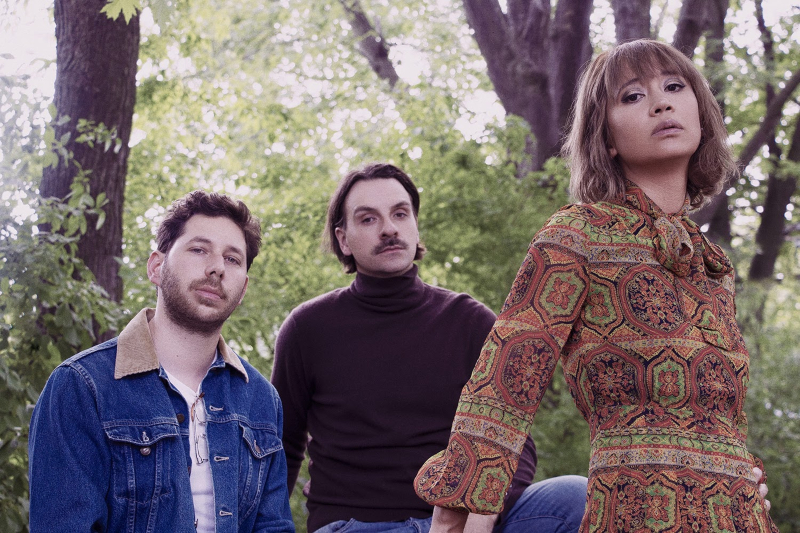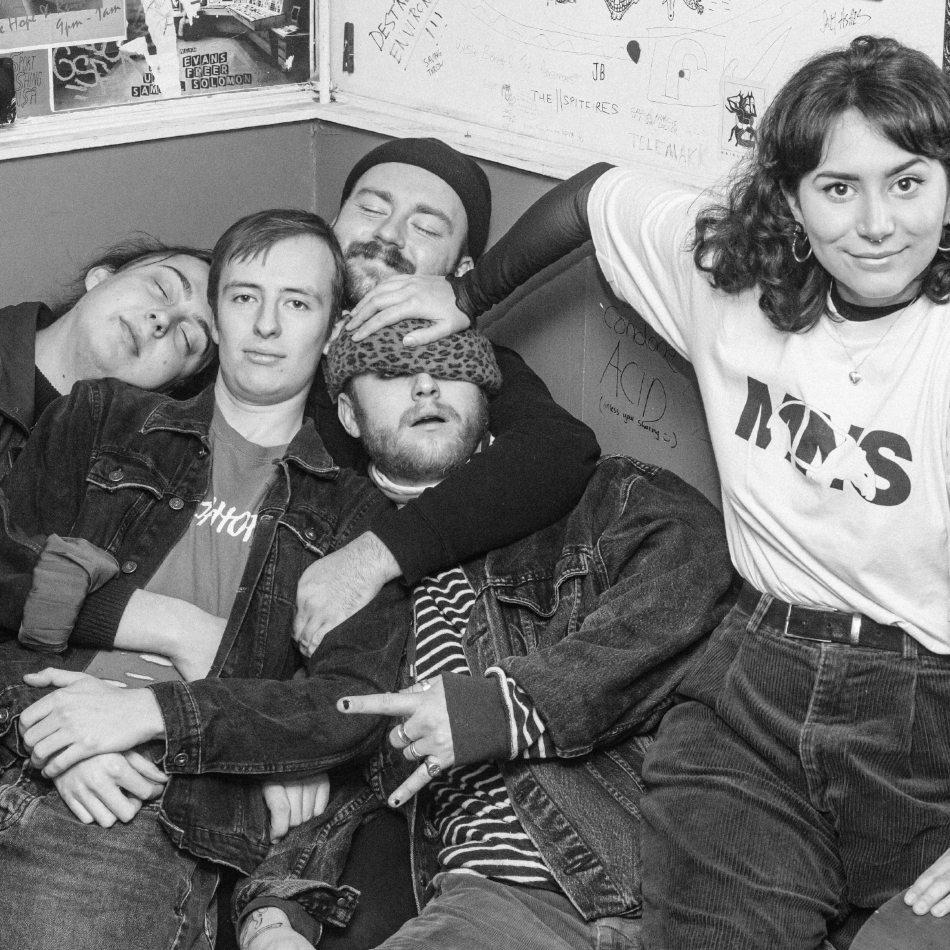In conversation with The Octopus Project
Interview by Shannon Lawlor
The Octopus Project are an experimental indie-pop band from Austin, Texas. Since 1999, the quartet have released numerous singles, six extended plays including a split album with psychedelic-pop band Black Moth Super Rainbow, four film scores including a 2014 Sundance Film Festival favourite Kumiko, the Treasure Hunter, directed by David Zellner, and six full length LPs including 2017’s gorgeously hypnotic Memory Mirror, marking the band’s first album in seven years without longtime member Ryan Figg, who was then replaced in 2015 by Lauren Gurgiolo from bands Okkervil River and The Dialtones.
Rich in experimentation, and deep in creativity, with song titles such as ‘Crying at The Aquarium’, ‘Tuxedo Hat’ and ‘Exploding Snowhorse’, The Octopus Project shine on through fantastical and hallucinatory imagery, resonance and character, implementing a potent use of sampling, unearthly guitar tones, nostalgic theremin soaked atmospheres and brainwaves of electronic and/or acoustic drums and percussion. Stirring multiple genres together to create something entirely of their own, The Octopus Project share a heart of gold, or, wet gold to be more specific, and continue to dazzle and exceed expectations beyond any single mind’s comprehension.
We spoke with multi-instrumentalist Josh Lambert of The Octopus Project on recollection and hometown gentrification:
For anyone unfamiliar with the sheer whimsy and creativity behind The Octopus Project, could you explain how the band first formed?
We started the band in 1999 as an experiment. We had been playing in indie rock bands together for a few years, but wanted to do something less formulaic & incorporate weird sounds & samples. We really had no expectations or rules, we just wanted to have fun and do something new!
Your music is a vibrant, eclectic mix of blended genres – do you feel it’s harder to collectively decide on where to go when writing or recording?
I feel like we’re all generally on the same page. Of course we don’t agree on everything all the time, but above everything else, we trust each other. If one person is super passionate about an idea we have faith that they/we can take it to a place that we’re all excited about.
Austin seems to have a very healthy, lively music scene – but how would you describe it? And if you could change anything about it, what would that be?
The music scene in Austin is super active! We’ve been here for 20 years, so we’ve seen it change quite a bit. When we first started, it felt like a tiny community of weirdos all just doing their own thing. It’s basically the same thing now, but x 1,000,000,000. The town as a whole is extremely open to experimentation and creativity, which can be helpful to an up-and-coming band/artist/chef, etc.
There are definitely cracks in the façade however… People (with money) are flocking to Austin in droves because it’s a “cool” town, which is pushing the artists out. Rents are going up, property taxes are skyrocketing, new condos are being built in the middle of the entertainment districts (many times knocking down existing music venues in the process), then subsequently complaining about sound. It’s an enormous problem. Of course everything changes, but the growth in Austin is happening at such an exponential pace that unfortunately the artists, musicians and everyone who works in the music industry are suffering.
The city is trying to combat this in a variety of ways, which is great. We shall see!
The Octopus Project supplied the score to the 2014 film Kumiko, the Treasure Hunter, directed by David Zellner. Could you tell us how this came about, and what it may have taught you as a band?
We’ve been buddies with David and Nathan Zellner for a long time. They’ve made music videos for us & we’ve supplied music for some of their short films & features. We had been talking with them for a few years about scoring what became Kumiko – passing musical references back and forth/talking about the script/etc. So, when it came time to make the film, we were all on the same page.
We learned a lot on that film in the sense that a little goes a long way. As a rock band, we generally throw everything into our songs, which makes things super dense. I love that approach, but for a film like Kumiko, you have to head in the opposite direction. The whole film is from the perspective of Kumiko, so it’s more about getting into her head than being bombastic.
Being a four-piece – could you name some individual musical influences which may have helped shape The Octopus Project’s unique and spontaneous sound?
Oh man, that’s hard! It’s all over the place & ever-changing. When we first started the band in 1999, I know we all obsessively listened to Fantasma by Cornelius,Dots & Loops by Stereolab, Homogenic by Bjork, Red Medicine by Fugazi, Music for 18 Musicians by Steve Reich, Richard D James by Aphex Twin… All of those records had an enormous influence on us in the early days.
These days we listen to anything we can get our hands on. Long drives on tour is a great excuse to check out new stuff!
Could you share some memorable career highlights with us?
We’ve been super lucky in our career! Someone entered us in a contest to play Coachella in 2006 (without our knowledge), and we won! I feel like that was the first time folks started to really take notice of our band, which led to playing a ton of other bucket list fests.
In 2010 we were set to open for DEVO at Moogfest in North Carolina, but a few days before the show, Bob Mothersbaugh sliced open his hand & they had to cancel their whole tour. DEVO was receiving an award at the fest, though, so they asked us to fill in as their backing band on a couple of songs (!!!). It was totally amazing!!! We then became buddies & they took us out on tour with them after Bob healed up.
Memory Mirror is the sixth studio album by The Octopus Project, could you tell us about the recording process, and how it may have differed from previous sessions?
We made Memory Mirror in a similar way to our previous record, Fever Forms. We recorded most of it at home, then went to mix it in nice, fancy studios. We were super honored this time around to get to work with one of our heroes, Dave Fridmann. We’d been fans of his since the early 90’s, but never thought we’d get to work together. A mutual friend put us in touch, we sent him some demos, which he liked and then we headed up there to mix. It was a dream come true – definitely another career highlight!
The rest of the record was mixed back in Austin with our buddy, Danny Reisch – who is equally badass in his own right!
Your live performances are usually very colourful and energetic – what are some of your favourite aspects of performing live as opposed to being in the studio?
Playing live and making a record are two entirely different beasts for us. Making a record, we’re focusing on all the tiny little details and tweaking things to no end. Playing live, we can just let loose and bang on shit! The tiny details get lost & all that matters is how things are feeling in the moment. Plus, in the live shows, we can completely control the environment with lights and video. We do our best with the records (with the sounds & artwork), but you never know what situation people will be listening in. I love both making records and playing live – when you get tired of one, you can always go out and do the other.
Do you feel there is anything detrimental to The Octopus Project’s sound? Whether it’s a certain instrument, hardware, software etc – anything!
Having a computer in the band is often a super pain! It’s allowed us so much flexibility though… We started off with cassette tapes as backing tracks, then moved to CDs, minidiscs, iPods & finally an actual computer. The computer is great when it works, but when it crashes, it crashes hard. We’ve had to heat it up because it was too cold outside, put it inside an a/c tent because it was too hot, restarted it in the middle of a show a TON of times because it just decided to stop working. We’ve done our best to streamline & troubleshoot computer problems, but you never know what’s gonna pop up!
What does the future hold for The Octopus Project?
We’re super excited about the future! We’re just now finishing up the score to the next Zellner Bros. film. This last weekend, we played an ambient, improvised, quadrophonic live A/V show, which we’re hoping to continue tinkering with for future endeavors, we have a special release/tour happening early in 2018 & we’re working on European dates for next year. Non-stop!
For more information follow The Octopus Project on Facebook




Leave a Reply